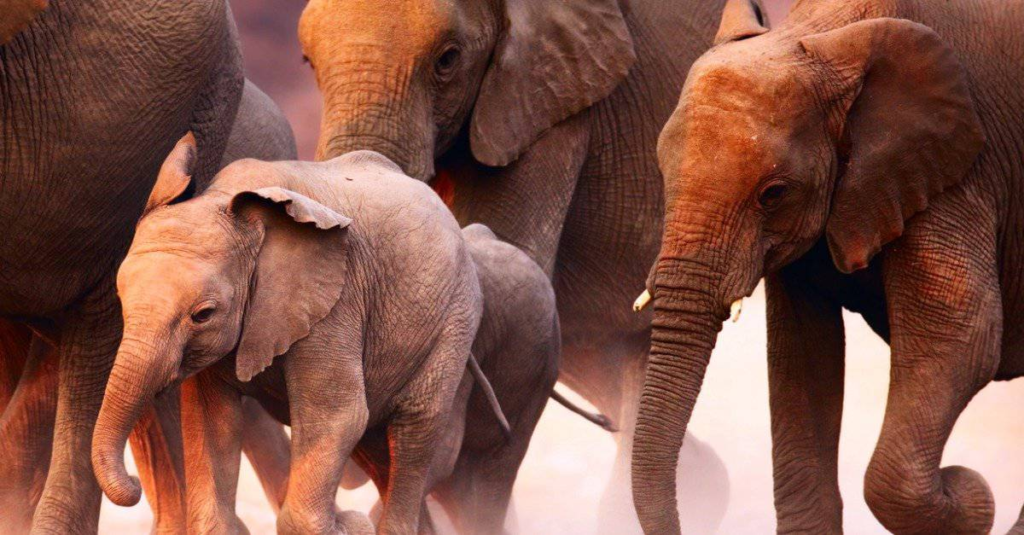Have you ever wondered, “What if an elephant starts chasing me could I outrun it?”
It might sound like a wild scenario, but it’s more common than you think in safari zones and forested areas. Whether you’re an adventurer, a wildlife enthusiast, or just elephant-curious, this post breaks down the real facts about elephant speed, their behavior when charging, and what to do if you ever come face-to-face with one.

photo credit:a-z-animals.com
How Fast Can Elephants Run?
Let’s get straight to it:
- African elephants can reach speeds of up to 25 km/h (15.5 mph).
- Asian elephants are a bit slower, maxing out around 20–24 km/h (12.4–14.9 mph).
💡 Interesting fact: Elephants don’t technically run like we do. Their feet stay on the ground at all times, even at top speed—so they move fast, but without the typical “aerial phase” of running.
Can a Human Outrun an Elephant?
Short answer? No, not likely.
Let’s compare:
- Average human jogging speed: 8–10 km/h
- Usain Bolt at peak sprint: 44.7 km/h (27.8 mph) (but only for a few seconds)
Unless you’re an Olympic-level sprinter and already running when the elephant charges, the elephant will almost always outrun you in open terrain. Plus, they can sustain their speed for longer than you think.
Why Would an Elephant Chase You?
Elephants don’t just chase for fun. They’re highly intelligent, emotional animals—and most charges are defensive, not aggressive.
Common triggers for an elephant charge:
- You’re too close to its baby or herd.
- It feels cornered or threatened.
- It’s a musth bull (an adult male in a hormone-charged state of aggression).
- You made a sudden movement or loud noise.
What to Do If an Elephant Charges at You
Now comes the survival part.
Here’s what NOT to do: Don’t turn around and run. Elephants are smart—they’ll know you’re prey.
Instead, try this:
- Stay calm: Sudden panic triggers more aggression.
- Assess the charge:
- Mock charge: Ears spread wide, trunk curled inward, stops short. Bluff.
- Real charge: Ears pinned back, trunk down and stiff, head low. Run.
- Back away slowly: Keep facing the elephant.
- Use obstacles: Trees, rocks, slopes—anything between you and the elephant helps.
- Don’t climb trees unless it’s quick and safe—elephants may wait below.
⚠️ If it’s a full-on charge, and you’re out in the open with no cover—yes, then run in a zigzag pattern and head downhill if possible. Elephants are less stable on slopes.
How to Prevent an Elephant Encounter
It’s all about awareness. If you’re hiking, on safari, or in elephant territory:
- Keep your distance—never approach for a photo.
- Stay downwind—your scent carries.
- Avoid noise and sudden movements.
- Travel in groups—elephants are less likely to engage multiple people.
- Learn to read signs—fresh dung, snapped branches, and footprints can alert you to nearby elephants.
Real-Life Elephant Chase Stories
Countless safari guides have tales of bluff charges and narrow escapes. One popular story involves a ranger in Zimbabwe who stood his ground during a mock charge—and the elephant stopped just 10 feet away. In many cases, it’s about knowing when to stand still and be dominant, and when to run smart and run safe.
FAQs
How fast can an elephant run at full speed?
Around 25 km/h (15.5 mph) for African elephants, slightly less for Asian ones.
Are elephants aggressive to humans?
Not usually—most charges are defensive, especially if they feel threatened or you’re too close.
Can you zigzag to escape an elephant?
Yes, zigzagging can help, as elephants don’t turn sharply while running.
Do elephants really charge people?
Yes, particularly in areas where they’ve been disturbed by human activity or during musth.
Is climbing a tree a good idea if an elephant is chasing you?
Only if the tree is nearby, sturdy, and tall enough—don’t attempt if it takes too long.
Final Thoughts: It’s Not About Speed, It’s About Strategy
So, can you outrun an elephant? Technically—no. But you can outsmart one.
Your best chance of survival is:
- Avoiding the encounter altogether,
- Staying calm and reading behavior cues, and
- Using your surroundings wisely.
In elephant country, respect and distance are your greatest allies.
